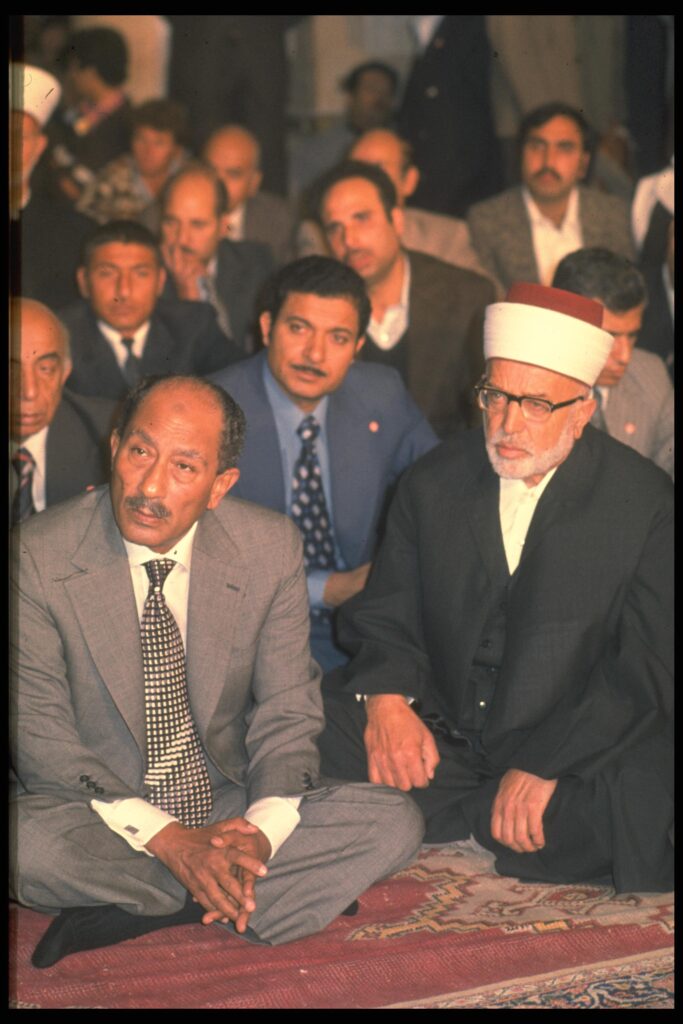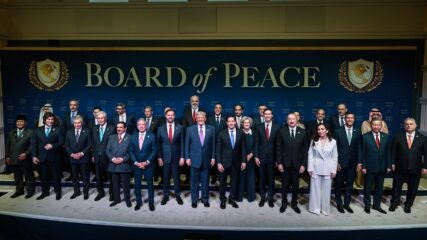December 25, 1918
Born into a family of thirteen children in Mit Abu al-Kum, Egypt, Anwar Sadat was a member of the Free Officers movement that overthrew Egypt’s monarchy in 1952. In 1964 Sadat was appointed as Egyptian President Gamal Abdel Nasser’s vice president. He held that position until Nasser’s death on September 28, 1970, and was appointed president October 15, 1970.
Inheriting a politically and territorially broken Egypt, which had sustained an embarrassing defeat to Israel in the June 1967 war, Sadat entered the presidency determined to rebuild his country. His main goals were to recover the Sinai Peninsula from Israel and to bolster Egypt’s diplomatic and economic ties to the Western world, focusing particularly on the United States.
On October 6, 1973, in conjunction with Syrian President Hafez al-Assad, Sadat began a surprise attack on Israel during the Jewish holiday of Yom Kippur. The fighting ceased on October 25. In the war, Israel kept control of both the Sinai Peninsula in the south and the Golan Heights in the north. When the war ended, Israel had crossed the Suez Canal, some 100 kilometers from Cairo, and was poised to destroy a large number of Egyptian troops, which it ultimately did not do.
During and after the war, Sadat reached out to the United States to express his interest in recovering the Sinai in exchange for an agreement with Israel. This catalyzed a series of diplomatic steps between Israel and Egypt with the aid of the United States, including Sadat’s historic November 19-20, 1977, visit to Israel. The diplomacy led the 1978 Camp David Accords and culminated in the 1979 peace treaty between Israel and Egypt. On October 6, 1981, Sadat was assassinated by Muslim extremists during an Egyptian military parade commemorating the October 1973 war.









